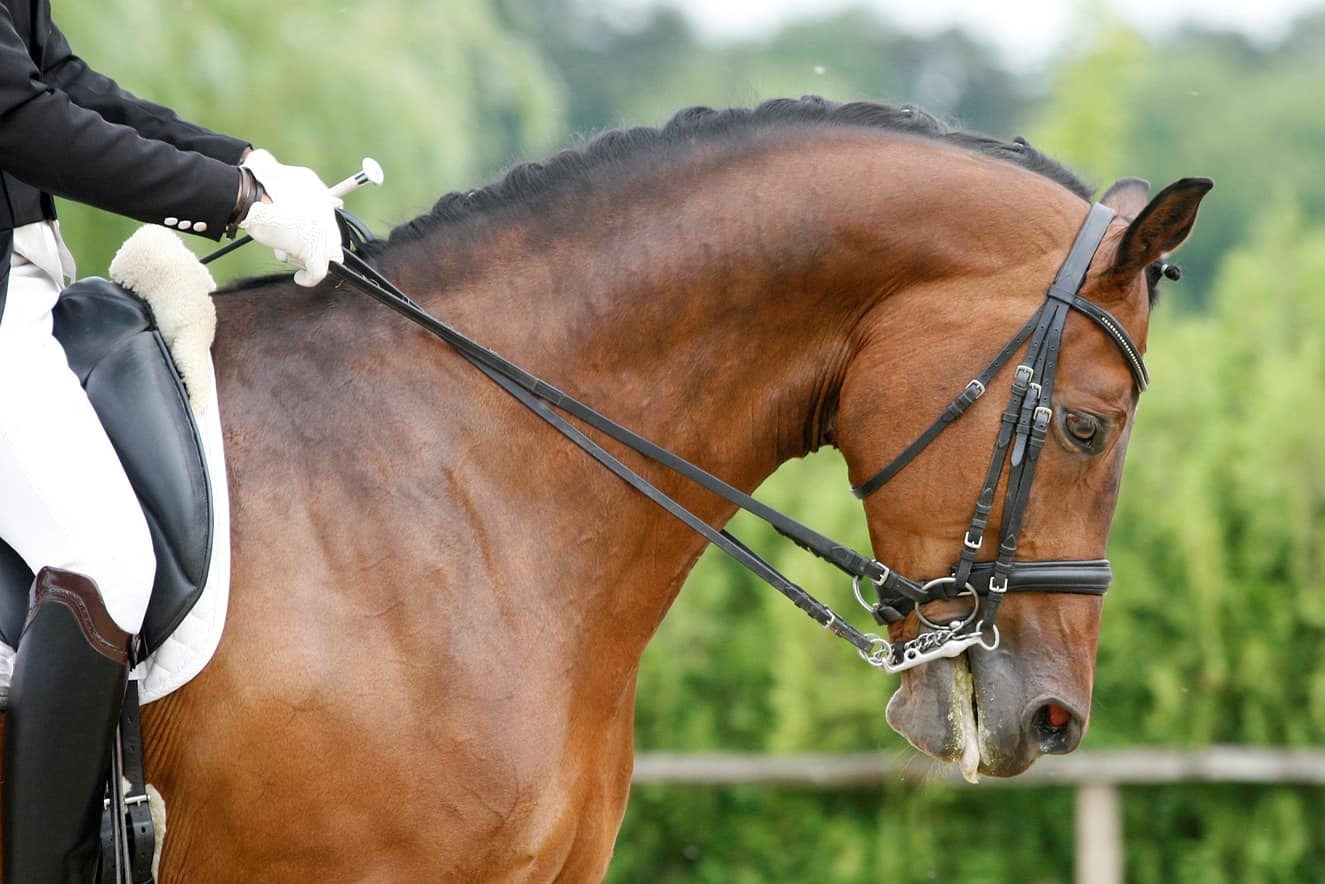Surgery Often Trumps Medicine for Treating Cranial Nuchal Bursitis in Horses

In many horse health scenarios, it’s common practice to try conservative medical treatment before opting for surgery. But researchers recently determined that skipping straight to surgery appears most effective for treating horses with an uncommon condition which affects the poll called cranial nuchal bursitis.
Cranial nuchal bursitis occurs when one of the three bursae (a sack filled with synovial fluid near the joint) of the nuchal ligament (a ligament near the poll) becomes inflamed and sometimes infected. It generally causes inflammation, pain, limited head and neck flexion, and poor performance. In some cases it can involve a bacterial infection and associated oozing lesions.
Horses that fully recover from cranial nuchal bursitis have a fair chance of going back to their previous work level, but those chances might be enhanced if owner and veterinarians opt for surgery as a first line of treatment instead of medicine alone. This is especially true for certain types of the disease, said José M. García-López, DVM, Dipl. ACVS, ACVSMR, associate professor of large animal surgery and equine sports medicine director at Tufts University’s Cummings School of Veterinary Medicine, in North Grafton, Massachusetts
Create a free account with TheHorse.com to view this content.
TheHorse.com is home to thousands of free articles about horse health care. In order to access some of our exclusive free content, you must be signed into TheHorse.com.
Start your free account today!
Already have an account?
and continue reading.

Written by:
Christa Lesté-Lasserre, MA
Related Articles
Stay on top of the most recent Horse Health news with











